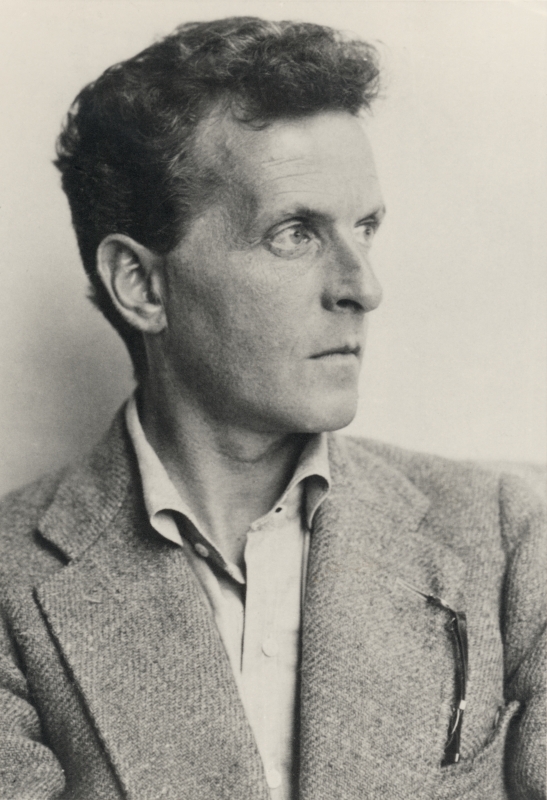Ludwig Wittgenstein nejznámější citáty
Ludwig Wittgenstein citáty a výroky
„Řešení problému života pozorujeme na tom, že tento problém zmizí.“
Tractatus Logico-Philosophicus
Zdroj: Konrad Paul Liessmann: Teorie nevzdělanosti, Academia 2009
„Člověk se musí probudit k údivu – a národy možná také. Věda je způsob, jak je zase poslat spát.“
Wittgenstein Culture and value, str. 5.
Ludwig Wittgenstein: Citáty anglicky
Zdroj: Culture and Value (1980), p. 44e
Zdroj: Culture and Value (1980), p. 56e
“Make sure that your religion is a matter between you and God only.”
Comment to Maurice O'Connor Drury, as quoted in Wittgenstein Reads Freud : The Myth of the Unconscious (1996) by Jacques Bouveresse, as translated by Carol Cosman, p. 14
Attributed from posthumous publications
“Animals come when their names are called. Just like human beings.”
Zdroj: Culture and Value (1980), p. 67e
Preface
1920s, Tractatus Logico-Philosophicus (1922)
Zdroj: 1930s-1951, Philosophical Occasions 1912-1951 (1993), Ch. 9 : Philosophy, p. 183
“Certainly it is correct to say: Conscience is the voice of God.”
Zdroj: 1910s, Notebooks 1914-1916, p. 75
“We must plow through the whole of language.”
Zdroj: 1930s-1951, Philosophical Occasions 1912-1951 (1993), Ch. 7 : Remarks on Frazer's Golden Bough, p. 131
Philosophical Remarks (1991), Part III (27), pp.66-67
Attributed from posthumous publications
“205. If the true is what is grounded, then the ground is not true, nor yet false.”
On Certainty (1969)
“A philosopher who is not taking part in discussions is like a boxer who never goes into the ring.”
Conversation of 1930
Personal Recollections (1981)
“One age misunderstands another; and a petty age misunderstands all the others in its own ugly way.”
Zdroj: Culture and Value (1980), p. 98e
“If a lion could talk, we could not understand him.”
Pt II, p. 223 of the 1968 English edition
Philosophical Investigations (1953)
“I must plunge into the water of doubt again and again.”
Zdroj: 1930s-1951, Philosophical Occasions 1912-1951 (1993), Ch. 7 : Remarks on Frazer's Golden Bough, p. 119
Zdroj: Culture and Value (1980), p. 15e
Zdroj: 1930s-1951, The Blue Book (c. 1931–1935; published 1965), p. 19
“612. At the end of reasons comes persuasion.”
On Certainty (1969)
Conversation of 1930
Similar to Wittgenstein's written notes of the "Big Typescript" published in Philosophical Occasions 1912-1951 (1993) edited by James Carl Klagge and Alfred Nordmann, p. 175: Philosophical problems can be compared to locks on safes, which can be opened by dialing a certain word or number, so that no force can open the door until just this word has been hit upon, and once it is hit upon any child can open it.
Personal Recollections (1981)
6.51
1920s, Tractatus Logico-Philosophicus (1922)
“What we do is to bring words back from their metaphysical to their everyday use.”
§ 116
Philosophical Investigations (1953)
“When I obey a rule, I do not choose.
I obey the rule blindly.”
§ 219
Philosophical Investigations (1953)
“If someone is merely ahead of his time, it will catch up to him one day.”
Zdroj: Culture and Value (1980), p. 8e
“What cannot be imagined cannot even be talked about.”
Journal entry (12 October 1916), p. 84e
1910s, Notebooks 1914-1916
Pt II, p. 189
Philosophical Investigations (1953)
Zdroj: Culture and Value (1980), p. 17e
“What is the case, the fact, is the existence of atomic facts.”
2
Original German: Was der Fall ist, die Tatsache, ist das Bestehen von Sachverhalten.
1920s, Tractatus Logico-Philosophicus (1922)

